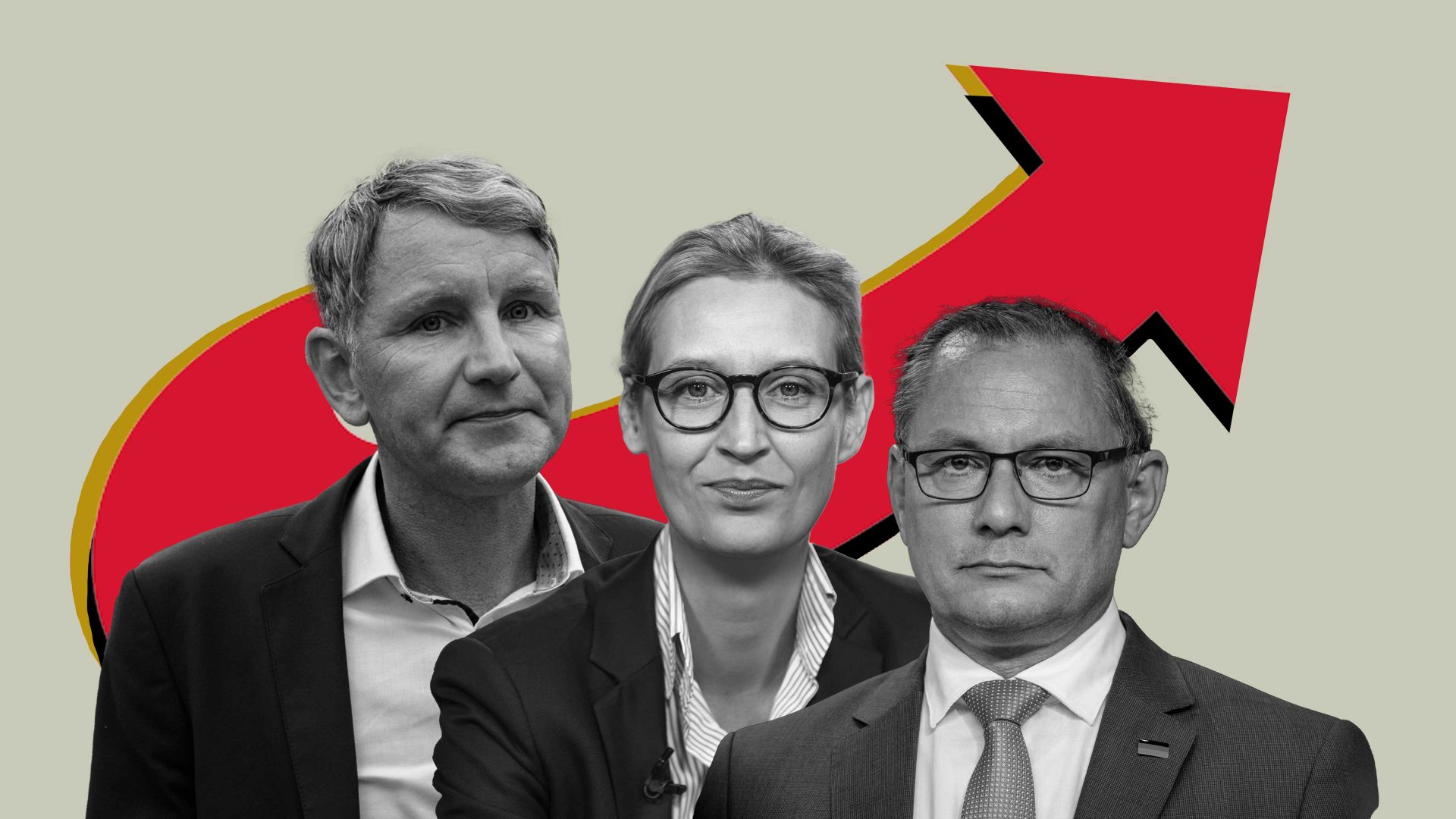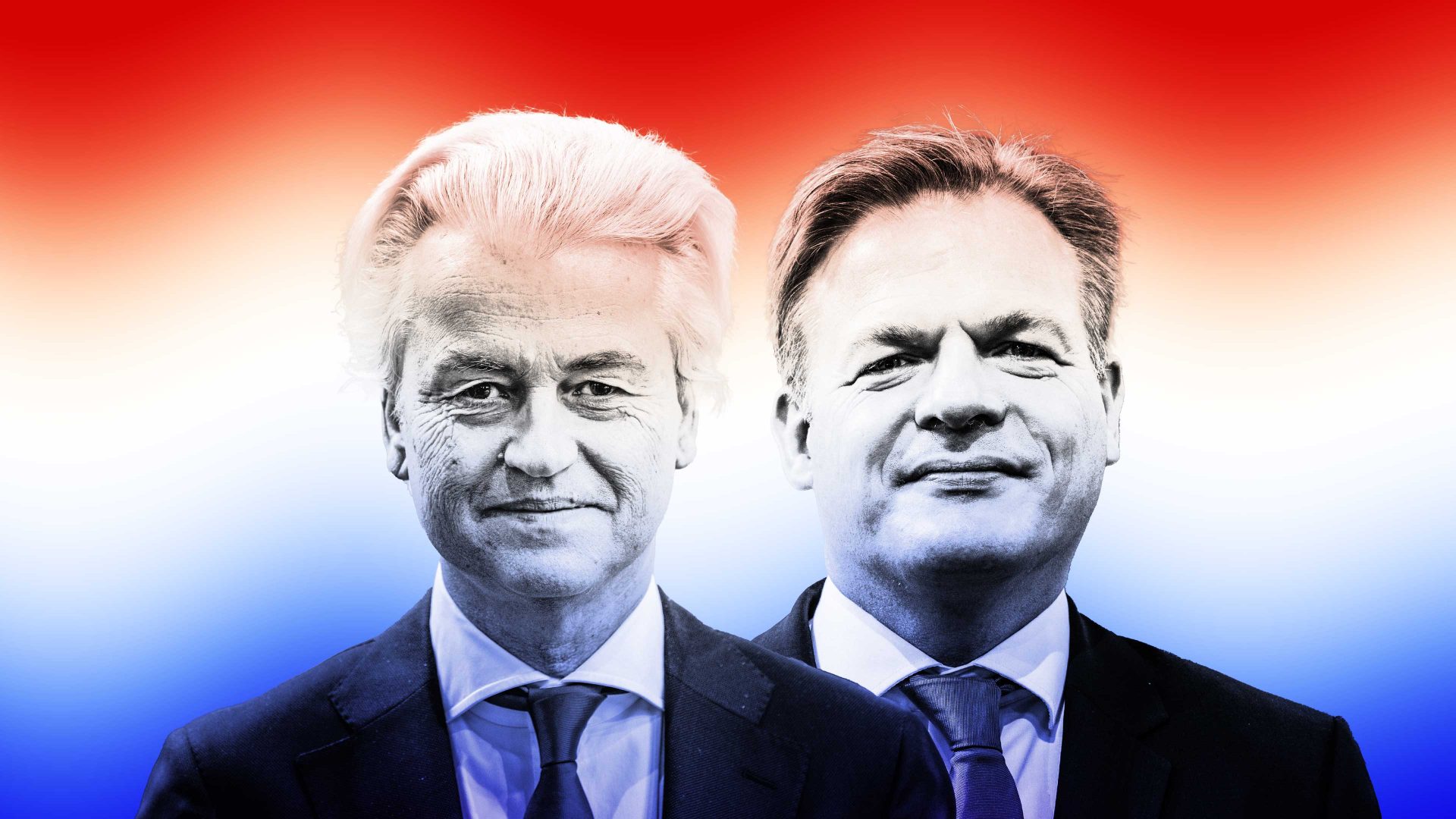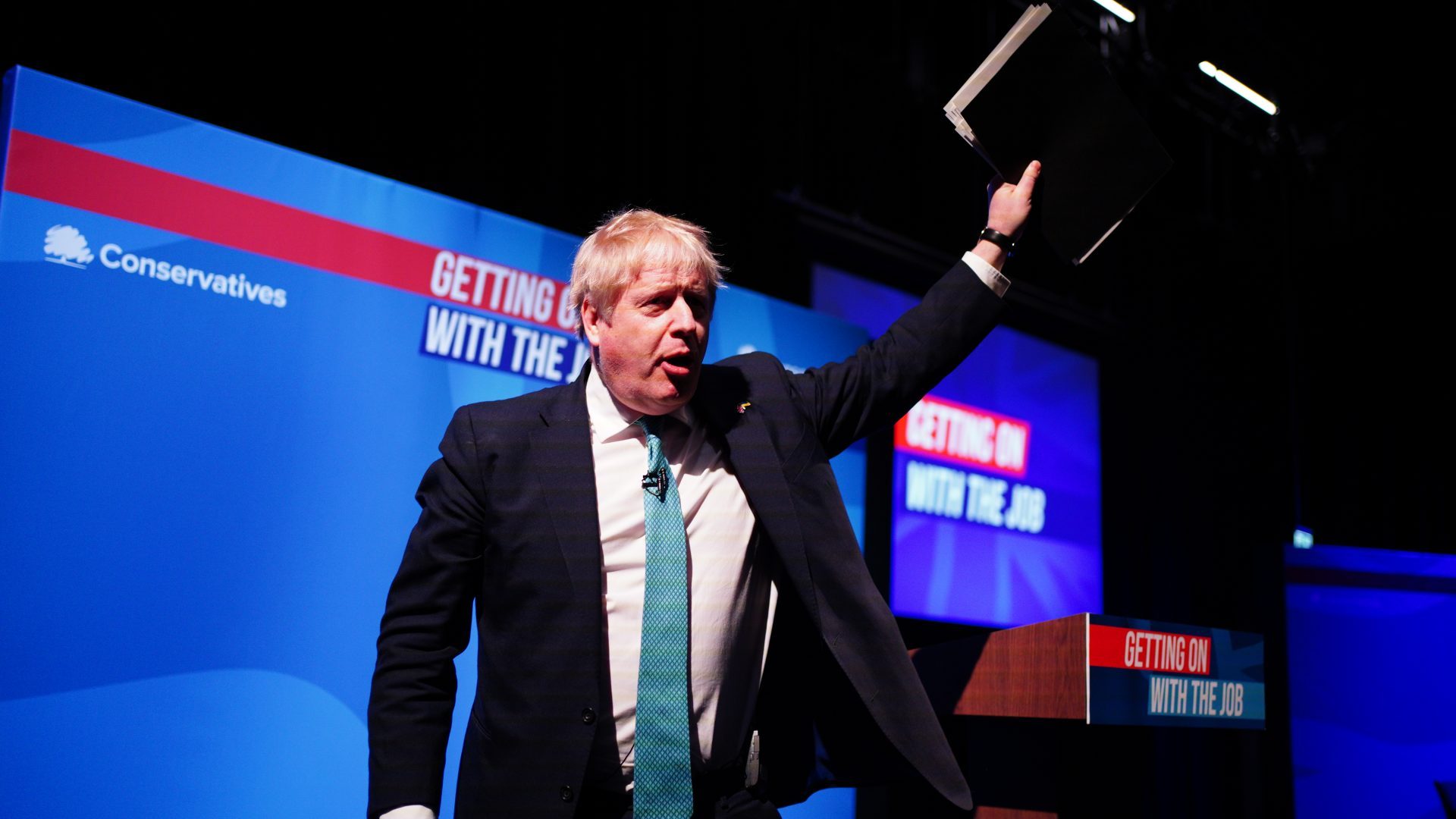The clock is ticking – only four months until the European elections – and it looks as if the far right AfD has somehow fallen half-pregnant on the campaign trail, with a baby called Dexit (D for “Deutschland” and “-exit”, well, you know best).
In the Financial Times, Alice Weidel, co-chair of the party, recently hailed Brexit as “dead right” and “a model for Germany”.
I haven’t yet come across her sense of humour, so I must assume she was serious. Last summer at the AfD convention, however, the 45-year-old with a PhD in economics seemed equally certain in a TV interview that the opposite was true, stating that Dexit “didn’t conform with her party’s agenda”. Back then, the delegates erased the demand for “an orderly dissolution of the EU” from the AfD manifesto.
Now, talking to the FT, Weidel declared: “If a reform isn’t possible, if we fail to rebuild the sovereignty of the EU member states, we should let the people decide, just as Britain did. And we could have a referendum.” Spoiler alert: for plebiscites to happen, a two-thirds majority in both chambers, Bundestag and Bundesrat, is needed to amend our constitution, but let’s not blame people for aiming high.
Note that Weidel spoke in the conditional – “if a reform isn’t possible” – while AfD’s European election manifesto clearly states: “We consider the EU as irreformable and see it as a failed project.” Well, which is it?
The back-and-forth of “Alice in Dexit-Land” (Frankfurter Allgemeine Zeitung) is contrary to the far right’s usual taste for snappy rhetoric. But Weidel isn’t the only one dithering. Her co-chair, Tino Chrupalla, a house painter and decorator from Görlitz, tries to have it both ways, too.
Last week, a talk-show host on public broadcaster ZDF asked him: “Should Germany leave the EU?” Chrupalla: “This EU needs to reform. And we need (Dexit as) leverage, as a last resort for the biggest net contributor.” He added: “In the long run Brexit will pay off for Great Britain.” – “How long is the long run?” – “That’s for the Engländer to decide.” Ja, let’s follow-up in a century or so.
The host bombarded Chrupalla with a few devastating figures on how Brexit has harmed UK growth and how disastrous Dexit would be for the German business model. The 48-year-old AfD-chair retaliated with multiple versions of: “I doubt that!”, “Economists massage the data to keep Europe together”, and “We’re in a recession, the UK isn’t”. Eventually he backpedalled: “I didn’t say that we want to completely dissolve the EU in its current form or that we don’t want free trade or freedom of movement.” This could have passed as a commitment to European integration. Of sorts. But naturally Chrupalla couldn’t resist the slight against “southern countries living off us”.
AfD-svengali Björn Höcke, extremist chief of the Thuringia branch, has yet another approach towards Brussels, which he sees as a globalist agency: “This EU must die for the true Europe to live.” Such pathos – little wonder a historian felt reminded of 1940s headlines and never-surrender morale-boosters after Stalingrad: “They died, so that Germany may live.”
On the whole, AfD suffers from schiz-EU-phrenia. As you may recall, the party’s roots are anti-euro and many members openly favour the nation state (they probably long to get the Deutsche Mark back, too). But even within AfD there is no majority for Dexit, and although support for the EU is weakest among their voters, it’s still substantial.
Much more so among the general German public: again and yet again, polls show an overwhelming and stable 80% plus for Remain, if ever there was a referendum. Brexit propped up this support, because Germans regard it as a messy affair, completely at odds with our Ordnungssinn (liking for tidiness) and Sicherheitsbedürfnis (need for security), not to be repeated.
This is probably why Höcke insists that his version of a new Europe of Nations (viz one very dominant nation in the middle, I guess) must be created organically, without revolutionary means. Because revolution, to Germans, equals chaos.
Still, any notion of leaving or ending the EU remains hugely unpopular, so it’s puzzling why AfD hasn’t long followed the example of Marine Le Pen, who buried her Frexit fantasies after the electoral defeat in 2017.
Dexit discussions are hurting AfD, who have fallen slightly in the polls (also due to continuing anti-far-right rallies). Flirting with Dexit may, however, motivate the hardcore EU critics to vote AfD. Because in the end, no matter how EU-friendly Germans are, if they don’t show their support at the ballot box, it’ll help the far right to attack the EU from within.




